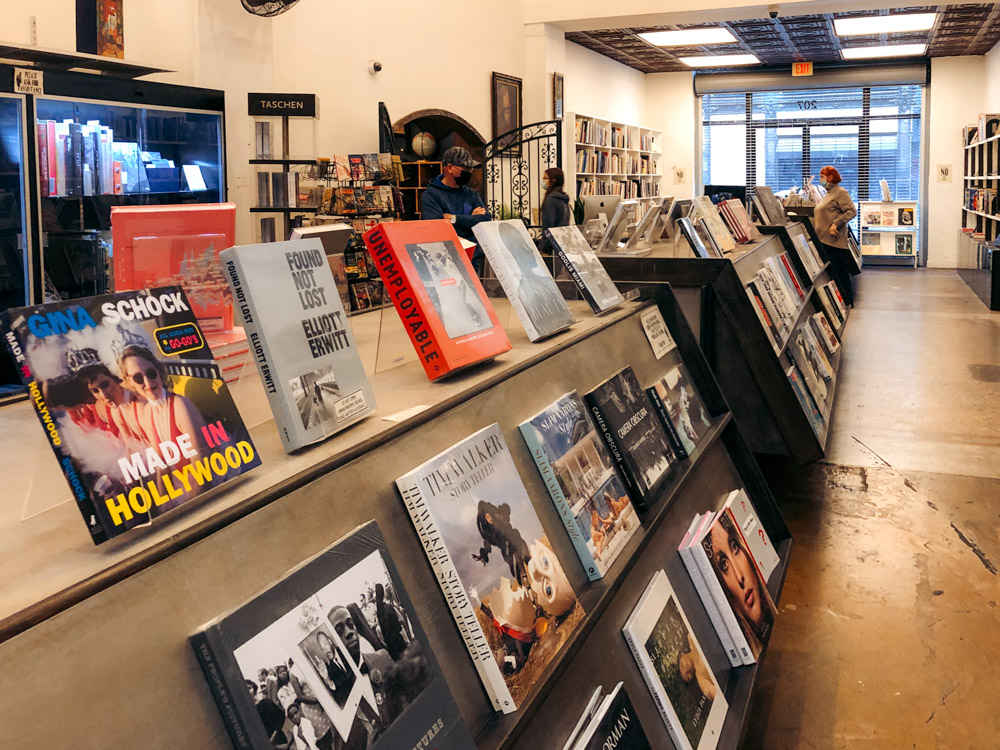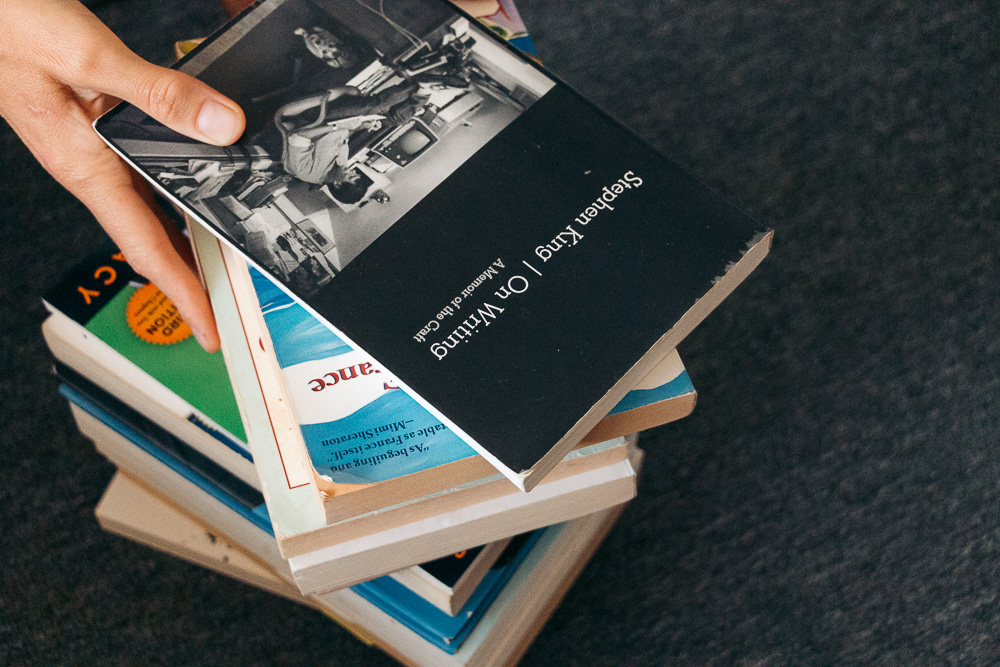Seven books you should read to become a better writer, storyteller, scriptwriter, editor, even blogger, if you wish.
Last updated: January 14, 2026

On Writing
“Everybody can write”, some say. Others are quite vocal in expressing their opinions that only a few can write well while the rest of wanna-be-writers achieve greater success as critics or editors.
I tend to agree with those who humbly state that the art of writing is a continuous process of improvement, self-editing, and creating something more beautiful and meaningful as you stretch and develop your writing muscle day after day.
Becoming a Better Writer and Storyteller
There is no shortcut, unless you are a virtuoso like Hemingway. To be a better writer, you need to spend hours mastering your craft whether it’s an article, book, or script for your next video. Editing your written work may take even longer. At the end of this process, you may have an entirely different story, stronger, more cohesive and fluent.
Keeping an open mind and trusting your own instincts are essential to become the writer you’ve always wanted to be. Reading other people’s works – classic books, mysteries, memoirs, historic novels, travel stories, great books, not so great books, books in original language or translated – the more the better, is another not so secret ingredient of becoming a better writer.
Two of the geniuses of modern literature, Stephen King and Haruki Murakami, credit the latter for becoming some of the leading contemporary writers. The books you read not only shape your worldview, but also give you invaluable advice, including unsolicited answers on how to structure and tell your story well.
The question on how to write better arouses a lot of theories. The topic has been discussed and dissected by many great writers, novelists, screenwriters, poets, essayists. There is no straight answer to this question. Yet if you want to pick up brains and look into writing caves of some of the successful authors, here are seven books on writing you should read to become a better storyteller yourself.

THE 7 BEST BOOKS ON WRITING TO HELP YOU BECOME A BETTER WRITER AND STORYTELLER
1. Novelist as a Vocation
By Haruki Murakami
Novelist as a Vocation is one of a few nonfiction books written by Haruki Murakami. In his signature style that sets him apart from the traditional Japanese literary world, Murakami narrates about his life, writing his first novel, Hear the Wind Sing, and submitting to his writing urge that transformed his life entirely.
Now with dozens of books that have been translated into 50 languages under his belt, the author unveils how the process of becoming a professional writer involved leaving Japan, writing in cheap hotels and busy cafes all over the world, and getting out of his comfort zone while putting out his works for American audiences.
Writing has never been difficult for the Japanese novelist. Masterly as only he can do, Murakami dispels common myths of writer’s block and defies a belief that all writers are either unhappy or unhealthy.
Practice, however, does make perfection. The more you write the better you become at writing. Your improved stories will unite generations and captivate your readers, making them trust that your next work would be as original and thought-provoking as your previous one.
Another key ingredient of becoming a better writer and storyteller is hidden not in one memoir, but hundreds of books you read. A voracious reader, Haruki Murakami encourages his audiences to read more. All kinds of books. Excellent, good, not so good, and even purely written.
2. On Writing. A Memoir of the Craft
By Stephen King
Stephen King gives almost identical advice to aspiring writers and storytellers in his book On Writing. The bestselling author of horror novels, King admits that he is a rather slow reader himself. Yet after spending the first half of the day woking on his writing (Mr. King writes every day, even on Christmas), he spends an afternoon reading. His reading collection counts nearly 70 books a year.
Partially a memoir, partially an excellent guide on writing, the book gives some of the practical tips and tools for every writer. Spiced up with vivid memories from the author’s childhood, On Writing will please every reader who likes a great story or dares to write her own narrative.

3. The Way of the Fearless Writer. Mindful Wisdom for a Flourishing Writing Life
By Beth Kempton
Beth Kempton takes an untraditional approach of dissecting secrets to becoming a fearless writer. Like all of her books, The Way of the Fearless Writer is intersected with ancient Buddhist wisdom. Beautiful storytelling starts with a free mind. So your body, unburdened from any fear and self-doubt, can create and bravely share your writing with the world.
Throughout the book, Beth Kempton describes different stages of writing and offers original exercises. While hundreds of pages of the books on this list abound with wisdom and timeless advice, The Way of the Fearless Writer is by far one of my favorite books on writing and becoming a better storyteller.
4. Big Magic. Creative Living Beyond Fear
By Elizabeth Gilbert
The New York Times bestselling author of Eat. Pray. Love, Elizabeth Gilbert challenges you to trust your instincts in her book Big Magic. Whatever creative ideas visit you, rely on them, trust them, and let them take you to a new place. Normally, they lead their chosen writers to a magical place a.k.a. big magic.
On the other hand, if you take long to respond to the spark that that particular idea instills into your heart, the idea leaves you. Now it’s on the way to find a more responsive artist, whether it’s a writer, storyteller, painter, or filmmaker.
At one point you may even see your forgotten idea finally come to a flourishing life through another creative. Don’t get discouraged or beat yourself up, though. There are plenty of new ideas out there looking for the right person. It might be you.
On a surface level, Big Magic deals with a difficult philosophical, even supernatural topic. Yet using examples from her personal life, Elizabeth Gilbert turns it into a brilliantly written story that inspires its readers to write their own books, create their own art, or simply face new challenges with an open heart and mind.

5. Bird by Bird. Some Instructions on Writing and Life
By Anne Lamott
In Bird by Bird, a book on writing and life, Anne Lamott demystifies the art of writing through personal anecdotes. She makes the process of creating an essay, a short story, or a whole book look easy, funny, and at some points even hilarious.
According to Anne Lamott, a writer should break her work into simple steps and tackle each of these “birds” – plot, first draft, dialogue, etc – one by one. The simple advice is a game winner when it comes to failing at or becoming a better storyteller.
6. The War of Art
By Steven Pressfield
The War of Art talks about procrastination and resistance. First, the author defines resistance. Later, he explains how it affects every single person regardless of his or her occupation. And finally, in the third part of the book, the reader learns how all forces come together to his help.
All you need to do is to never give up on your resistance. Writing may get hard at one point or another. Yet you need to persevere to reach the ending point where all these struggles are paid off.
Steven Pressfield suggests that you come up with a plan and finish your task for the day regardless of your circumstances. Don’t postpone for later what you can do today. This is a sure recipe to break a huge project of writing a book, an essay, or a story into feasible sections.
7. The Elements of Style
By William Strunk Jr. and E.B. White
The Elements of Style is an English grammar book and probably not one of the books you would pick to read on a lazy Sunday afternoon. Yet, this short, about 80 pages, book is such a helpful tool for anybody who does any kind of writing.
Whether you need to polish your grammar to write an essay or build a resume, stick to the rules outlined in this book. Even the father of American horror fiction, Stephen King, regards it as one of the best books to improve your storytelling and writing style.
Read More
- JOURNALING: Why You Should Document Your Travel Experiences
- LEARNING NEW LANGUAGE: How Do You Actually Learn a New Language?